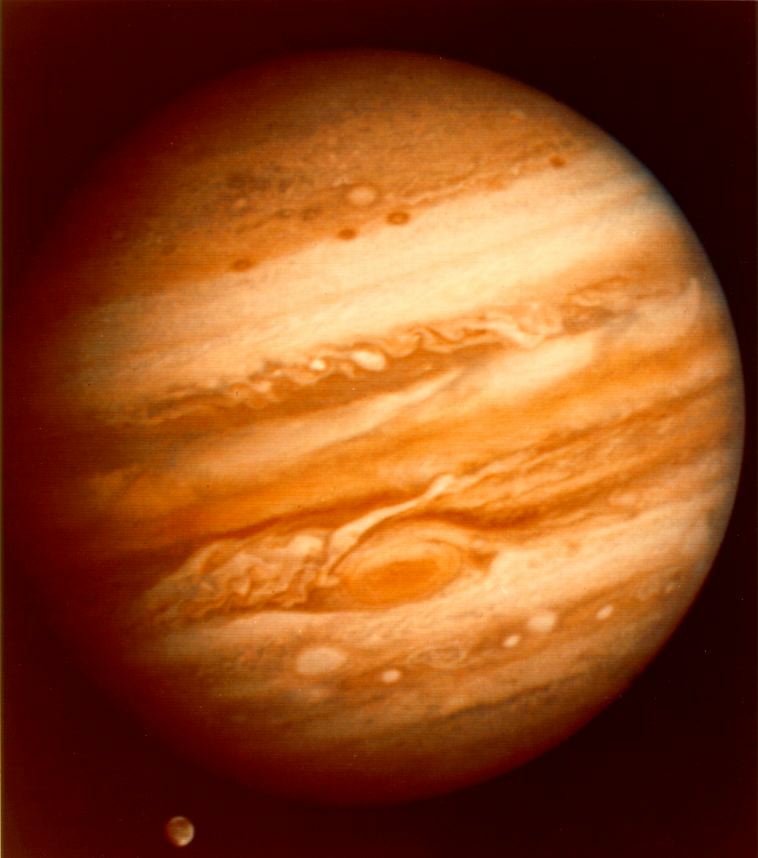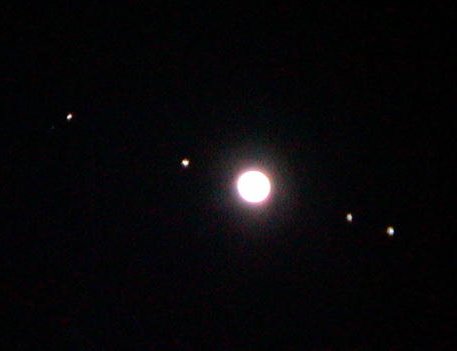I said to my 5 year old son a few clear nights ago, "Get your coat and shoes on and come and see Jupiter through the telescope." This was met with some enthusiasm.
It was a cold, clear night and
Jupiter and the Moon were to the south and I set the small scope up on
my driveway with my son prancing around me happily. I found the Moon
first so I could align the finderscope and then after a little
fiddling with screws, I called him to have a look. He continued
prancing for another minute or so and then came over.
"Oooh! That's very bright" he said. The moon is very bright through
even a small telescope.
Then I swiveled it onto Jupiter. I could see the disk, faint banding and three of the four Galilean moons. I then called my son over again and he looked through the eyepiece.
"But that's rubbish!" he said.
Clearly
he expected this but got this
but got this  He listened quietly to my attempt at
explaining what he was seeing, but seemed unconvinced, but I hope my
few words lodged somewhere in his mind.
He listened quietly to my attempt at
explaining what he was seeing, but seemed unconvinced, but I hope my
few words lodged somewhere in his mind.
The next night I was doing something similar with a telescope with an evening class at Glasgow University observatory. There was much less prancing around. They were very impressed by the Moon, pleased and interested at Jupiter but disappointed by the smudge that was the Andromeda galaxy. Of course, when you explain that the smudge is a galaxy of several hundred billion stars and that the light they just saw left those stars over 2 million years ago, then that smudge takes on a new significance.
We were also treated to a meteor, a couple of satellites and for a moment we were all perplexed by a strange, flickering orange "star" drifting across the sky to the north. After a bit of theorising, we concluded it was a chinese lantern, which we then confirmed with binoculars and a fleeting glimpse as it zipped across the telescope's field of view.
The night sky is beautiful to the naked eye, but it has an even deeper beauty that can only be appreciated with your mind.